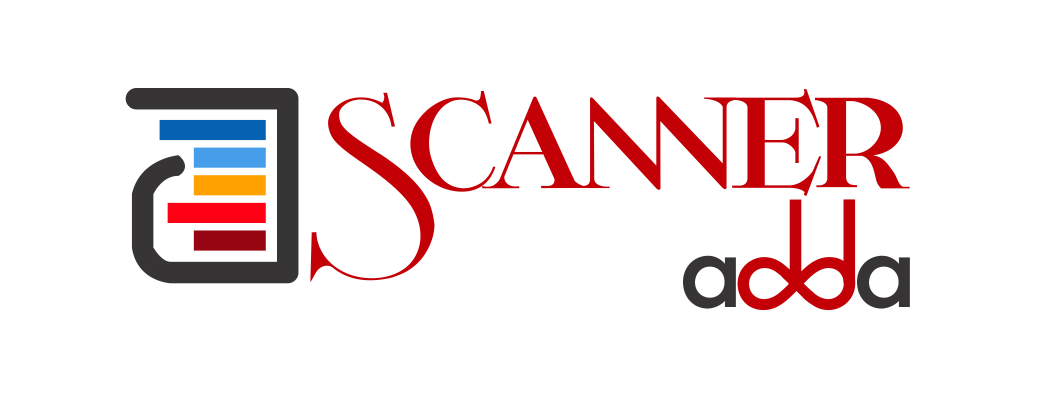Beginning your path to becoming a Cost and Management Accountant (CMA) is an exciting and challenging time. The CMA Foundation examination is the first level of the CMA course administered by the Institute of Cost Accountants of India (ICMAI). For many first-time students, it can seem overwhelming — new subjects, a huge syllabus, and not enough time. However, you can clear it on your first attempt with a well thought out approach and consistent study habits.
This article written by scanneradda provides a simple, step-by-step approach to CMA Foundation 2025 -- whether you are appearing in the June or December attempt.
Knowledge of the CMA Foundation Exam
The CMA Foundation course develops your understanding of accounting, economics, business laws, and mathematical ideas. It will help you grasp the foundational ideas needed for higher study, such as CMA Intermediate and Final.
There are four basic papers in CMA Foundation:
1. Fundamentals of Business Laws and Business Communication
2. Fundamentals of Financial and Cost Accounting
3. Fundamentals of Business Mathematics and Statistics
4. Fundamentals of Economics and Management
Each subject carries a maximum of 100 marks. The CMA Foundation examination takes the format of an online examination and will consist of multi-choice questions (MCQs).
A good strategy for beginning your revision is to be well-acquainted with your syllabus, and to understand what your subjects are asking of you.
Step 1: Create a Realistic Study Plan
As a first-time CMA student, you need to study smartly. Break up your preparation into three stages—Learning, Practice, and Revision.
Stage 1: Learning (First 2 months)
- Start with the official study materials provided by ICMAI. This is the most reliable source of study.
- Try to stick to one subject at a time and attempt to cover two chapters per day (based on your availability).
- After each topic, prepare short notes in simple language.
Stage 2: Practice (Next 1.5months)
- Attempt to solve all illustrations and examples given in your CMA studies and ICMAI study materials.
- Start practicing objective questions after your completion of every chapter
- Repeat your revision of difficult topics more frequently.
Stage 3: Revision (Last 15-20 Days)
- Review your notes on a daily basis.
- Practice with sample exams and past questions.
- Work on exam accuracy and timing.
Creating and following this plan on day 1, will ensure that you can complete your syllabus with no issue before the exam.
Step 2: Study with the Appropriate Material
The key to success begins with the appropriate study materials. The CMA Foundation syllabus is knowledge-based so being clear is superior to memorizing.
ICMAI publishes the official study material for each subject. You should read it line by line - it contains everything you need in order to pass your exam.
You can also get a CMA book or text for extra practice in addition to the official study material. But, don’t slip into the habit of collecting too many materials, more study materials will cause confusion. Continue to use only one book per subject and revise it a couple of times instead of spreading your attention across multiple books.
Quality is better than quantity
Step 3: Consistent Practice
The CMA Foundation exam aims at comprehension and application. All forms of practice build speed and accuracy.
Complete 50-100 multiple-choice questions each week.
Create a list of the areas you are struggling with and work on at least 1 of these every day. Get comfortable with your calculator, as you can save time on quantitative questions.
Use a timer to complete everything including mock papers. Try to complete the exam in 2 hours rather than the given time.
Regular practice builds confidence, and reduces exam anxiety.
Step 4: Revise Multiple Times
Revision is the secret to earning a good score. Most students study a syllabus only once before forgetting it. Rank holders use syllabus revision over and over again - three times before an exam in many cases.
Here's a super simple revision plan:
First revision: Review the syllabus after each subject is complete, one time each.
Second revision: Review the entire syllabus after one month.
Final revision: Review your 10 or so pages of short notes, formulas, and key terms in the last 10 days.
This way, concepts will stay alive in your mind.
Step 5- Concentrate on Conceptual Understanding
Rather than memorizing alone, try to understand the rationale behind every formula, law, and accounting principle. For example:
- In economics, understand how supply and demand operate in the real world.
- In cost accounting, understand why each of the cost elements exist.
- In business law, find readings that are considered case samples to keep learning interesting.
If you understand the concept, you can answer any question type.
Step 6- Survey Consistency and Have a Positive Outlook.
Studies show that preparing for your first professional exam can create a sense of stress and anxiety. Just keep in mind, consistent studying, and performance will always outweigh a moment of intensity as a student. You must be prepared to study every day; some days for more than a few hours, others only a couple but at least sit down to study in a calm setting. Be sure to take breaks and do not compare your efforts to others.
Practice a positive attitude and trust that preparation will pay off. After all, success doesn't happen overnight, but any effort put forth each day pushes you to be successful.
Step 7: Make final preparations for exam day
In the final week:
- Don't begin any new topics.
- Review your short notes and formulas.
- Get to bed early, and stay relaxed.
- On the day of the exam, carefully read through the questions beforehand and don't rush.
Keep in mind that your biggest advantage of the exam hall will be your calmness.
Conclusion
It can feel daunting to think about sitting for the CMA Foundation 2025 exam as a first-time student, but with a diligent plan and committed effort, it is entirely possible to achieve.
Develop a structure to your study schedule, make the most of the CMA designated textbooks, and revise your studies regularly.
Scanneradda delivers the same humble message to students that hours do not matter—consistency and efficient/research-based study is the key! Have faith in yourself, and keep to your study plan, approaching each subject with curiosity and confidence!
It doesn't matter if you take the exam in June or December; consistent study will pay off for you. Lastly, remember that every Highest Achiever CMA was once a first-time student too, so don’t stress and never give up.










